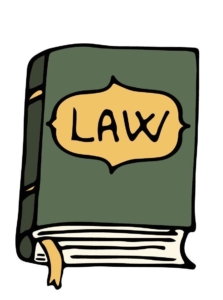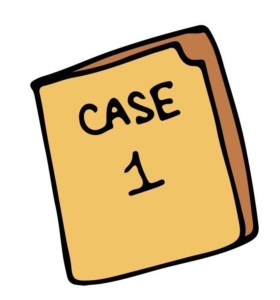Why 3Play is Better at Compliance
Updated: October 20, 2023
When looking for a video accessibility vendor, it’s important to partner with one that complies with state, federal, and international laws.
At 3Play Media, we ensure that each and every single file that’s processed in our account system for captioning or audio description services is in compliancece with all the major laws and standards.
Learn How to Select the Right Video Accessibility Vendor! ☑️
What is Compliance?
According to the Merriam-Webster dictionary, compliance is defined as “conformity in fulfilling official requirements.” In the case of video and web accessibility, compliance is a term used in the captioning and audio description industry to ensure that video content adheres to the law.
When it comes to the law, there is no partiality; it’s either your online content is compliant with the law or it’s not.
When choosing a vendor to work with, it’s imperative that they provide a legal compliance statement on the federal accessibility laws and international standards for web accessibility. Not only does this prevent the possibility of legal action against your organization, but it also means that your video content will be accessible to millions of people with disabilities.
In this post, we’ll cover the major laws and standards that govern video accessibility and how 3Play Media is in compliance with each one.
FCC
The Federal Communications Commission, otherwise known as the FCC, is an independent agency of the U.S. government that regulates national communications.
One of its major initiatives is to provide accessible communications by breaking down barriers to viewing media. It does this by enforcing standards for accessible electronic and information technology, including adding captions and descriptions to video and media content.
The FCC has four aspects of quality to make sure viewers with disabilities have an equal experience as their counterparts when watching video.
Accuracy
“In order to be accurate, captions must match the spoken words in the dialogue, in their original language, to the fullest extent possible…” This means that captions must use proper spelling, spacing between words, capitalization, and punctuation.
The FCC also requires that in order for captions to be accurate, they must include non-verbal information, like sound effects.
Synchronicity
“In order to be synchronous, captions must coincide with their corresponding spoken words and sounds to the greatest extent possible.” This means that captions have to occur at a speed that can be read by viewers.
For live captions, the FCC allows for some delay. However, it should be kept to a minimum.
Program Completeness
“In order for a program’s captions to be complete, captions must run from the beginning to the end of the program, to the fullest extent possible.” This means that captions must never drop off in the middle or end of a program in order to be considered complete.
Placement
“Captions should not block other important visual content on the screen including, but not limited to, character faces, featured text, and other information that is essential to understanding a program’s content.” This means that captions shouldn’t run off the edge of the screen and that the text should be sized appropriately for legibility.
3Play Media uses the FCC’s standards for each file that undergoes captioning services with us. We ensure that each file complies with the four aspects of quality standards mentioned above for every single file uploaded.
CVAA
The 21st Century Communications and Video Accessibility Act (CVAA) was signed by former President Barack Obama in 2010 to ensure emerging technologies and communication channels are accessible to people with disabilities.
The CVAA consists of two titles: Title I outlines requirements for products and services that use the internet, while Title II outlines captioning and audio description requirements for online video.
This law applies to video content that previously aired on television and is now being published online.
According to the CVAA, captions and audio description are required for online video content if it aired on television.
It’s worth noting that internet-only video content doesn’t apply under the CVAA, but could be required under the Americans with Disabilities Act (ADA), which we’ll discuss in the next section.
The CVAA is an important law to know, especially for companies in the media and entertainment industries. 3Play works with a large number of companies that have aired their content on television and publish it online as well. When looking for a vendor, you want to make sure they are CVAA-complaint by providing accurate captions and descriptions.
ADA
The Americans with Disabilities Act (ADA) is a broad anti-discrimination law that was passed in 1990 to protect people in the United States with disabilities from discrimination. This applies to many sectors including employment, public entities, etc.
Although the ADA doesn’t specifically mention online video accessibility, it does call for “auxiliary aids” in communication.
It’s important to note that Title II and Title III of the ADA may be applied to web and video accessibility.
Title II prohibits discrimination by all public entities such as schools, courts, libraries, etc – regardless of if they receive federal funding. According to Title II, you must provide auxiliary aids and services when necessary to ensure effective communication. Also, public videos must be made accessible to people with disabilities.
On the other hand, Title III prohibits discrimination by places of public accommodation like hotels, restaurants, airports, etc. People with disabilities must have full and equal access to the goods and services provided by such places. If video is provided by a place of public accommodation, it must be made accessible
Before the rise of the internet, it was assumed that the ADA only applied to physical locations, like a brick and mortar store. However, with online businesses becoming more prevalent, especially in our digital-first world, the ADA has been open to interpretation. A number of lawsuits were filed against private companies for inaccessible digital communications, such as video, and has created a strong precedent that the ADA applies to the internet as well.
At 3Play, we ensure that our government, education, and online streaming companies are all complying with the ADA.
10 Questions to Ask a Video Accessibility Provider ➡️
Section 508
Section 504 and 508 are both under the Rehabilitation Act, a U.S. law enacted in 1973 and prohibits discrimination on the basis of disability in programs conducted by federal agencies and programs that receive federal funding.
The Rehabilitation Act has several sections, but in terms of web accessibility, Section 504 and 508 are the most applicable.
Section 504 states that any organization that receives federal funding must provide accommodations for people with disabilities, such as making video accessible with captioning and audio description.
Section 508 covers electronic communications in federal programs and services; all agencies must provide accommodations in both internal and external communications, including online video.
The Rehabilitation Act has the most impact on government agencies when it comes to accommodating people with disabilities. That’s why it’s important to 3Play that we adhere to this law.
WCAG
Last, but certainly not least, we have a standard for web accessibility: the Web Content Accessibility Guidelines (WCAG). WCAG, unlike the ADA and the Rehabilitation Act, is not a law, but an international standard that has become an industry standard for web and video accessibility.
The most recent version of WCAG is 2.1, but when you hear “WCAG compliant”, it’s most likely referring to WCAG 2.0 Level AA. It’s often referenced in many laws and policies around the world, including Section 508 of the Rehabilitation Act.
In order to comply with WCAG 2.0 Level AA, you must adhere to Level A as well.
- Level A: (1.2.2) Captions are provided for all pre-recorded audio content in synchronized media, except when the media is a media alternative for text and is clearly labeled as such. (1.2.3) An alternative for time-based media or audio description of the prerecorded video content is provided for synchronized media, except when the media is a media alternative for text and is clearly labeled as such.
- Level AA: (1.2.4) In addition to Level A compliance, captions are provided for all live audio content in synchronized media. (1.2.5) Audio description is provided for all prerecorded video content in synchronized media.
Now, when you hear “WCAG compliant”, you’ll know that when it comes to video content, captions and audio descriptions are provided.
WCAG takes a broad approach to accessibility by requiring that all web content abides by the following four principles. These principles ensure that content provides an equivalent experience for users with disabilities.
- Perceivable: Information and user interface components must be presentable to users in ways they can perceive. This means that users must be able to perceive all the relevant information in your content.
- Operable: User interface components and navigation must be operable. This means that users must be able to operate the interface successfully.
- Understandable: Information and the operation of user interface must be understandable. This means that users must be able to understand the information as well as the operation of the user interface.
- Robust: Content must be robust enough that it can be interpreted reliably by a wide variety of user agents, including assistive technologies. Content must be accessible to all users, keeping up with advances in technology, such as mobile technology.
Are You in Compliance?
No matter what industry your company is in, it’s important that when creating video content, it’s in compliance with major laws and standards by providing captions and audio description.
With so many vendors to choose from, legal compliance should be a top priority and cannot be compromised. If so, it could lead to a potential lawsuit down the road.
Most importantly, when your videos are compliant, they are accessible to people with disabilities who want to view and engage with your content.
3Play Media takes great pride in ensuring that your files are compliant with the prominent laws and standards. Whether you choose to work with us or another vendor, it’s important to ask the right questions to guarantee you’re making an empowered and informed decision. Check out our ebook on how to select the right video accessibility vendor!










